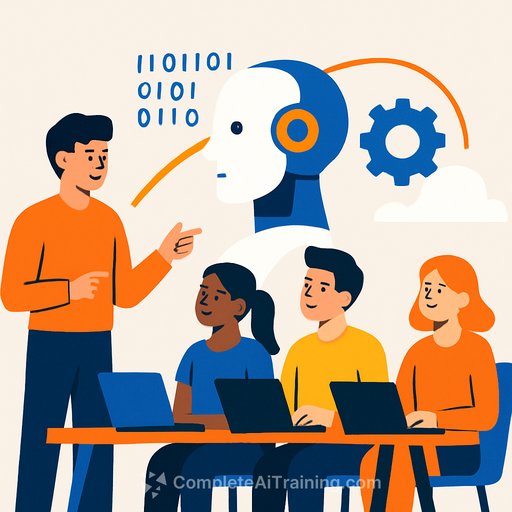Rethinking Entry-Level Legal Roles in the Age of AI
AI is transforming entry-level jobs across industries, and the legal sector is no exception. Tasks once handled by junior staff—like basic research, document review, and routine compliance checks—are increasingly automated. This shift challenges how legal teams build foundational expertise, safeguard security, and foster innovation.
Reducing human involvement too quickly, especially in early career roles, risks creating gaps in skills and oversight. AI outputs depend heavily on the quality of input and human judgment. Without sufficient training and hands-on experience, emerging legal professionals may struggle to develop the nuanced understanding essential for effective legal counsel and risk management.
AI’s Impact on Workforce Skills and Security
Overreliance on AI without parallel investment in human skill development can expose organizations to security vulnerabilities. For example, legal teams handling data privacy or cybersecurity compliance need practical experience to interpret AI-generated insights critically and apply them responsibly.
Many companies are adopting AI tools rapidly, yet a significant number of employees lack the training to use these tools effectively. This gap undermines the ability to manage AI risks and maintain rigorous legal standards. Building a sustainable workforce means balancing technology adoption with comprehensive human oversight.
Transforming Entry-Level Legal Work
Instead of eliminating junior roles, legal departments should redesign them to complement AI capabilities. Early-career professionals can focus on strategic thinking, complex problem-solving, and client relations while AI handles repetitive tasks like document review or contract analysis.
Approach AI as a new team member requiring supervision and continuous evaluation. Each AI application should be assessed not just for efficiency gains but also for its effect on employee growth and role evolution. Retraining employees to take on more strategic responsibilities turns automation into an opportunity rather than a threat.
Steps for Legal Leaders to Support Emerging Talent
- Build AI fluency as a core legal skill. Encourage junior lawyers and paralegals to gain hands-on experience with AI tools, understanding both their possibilities and limitations.
- Invest in mentoring and apprenticeships. Pair experienced legal professionals with newcomers on real cases. This practical exposure is key to developing judgment and expertise.
- Prioritize upskilling and role evolution. Legal roles will change. Offer training programs that prepare staff to manage AI tools effectively and explore new legal functions emerging from AI integration.
- Engage with educational and workforce development initiatives. Collaborate with law schools and training providers to close skills gaps and create pathways into legal careers that integrate AI competencies.
- Commit to retaining and redeploying talent. When roles shift, ensure affected employees can transition into new positions instead of facing displacement. This maintains institutional knowledge and supports morale.
Looking Ahead
AI will continue to change how legal work is done. Leaders who take proactive steps to balance technology with human expertise will safeguard their teams’ future. Developing entry-level talent with AI fluency and strategic skills is essential to maintaining strong legal functions that protect organizations and clients alike.
For legal professionals interested in expanding their AI skills, exploring targeted courses can be a practical next step. Resources like Complete AI Training’s legal-focused AI courses offer actionable ways to build relevant expertise.
Your membership also unlocks:






